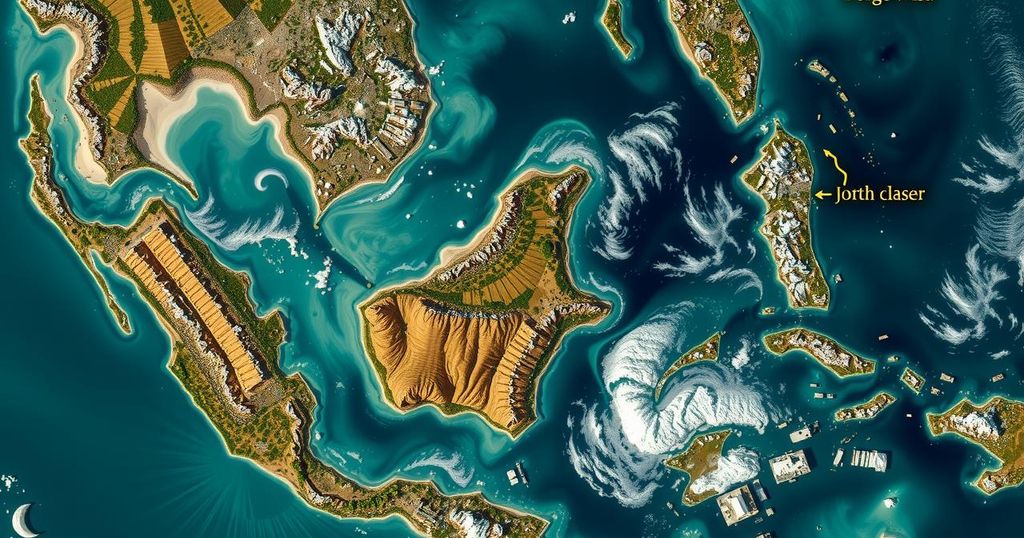Impact of Tropical Cyclone Chido on Agalega and Surrounding Islands

Tropical Cyclone Chido made landfall on Agalega on December 11, 2024, causing catastrophic damage. With winds up to 222 km/h, the cyclone destroyed homes and schools, prompting emergency responses from Mauritian and Indian authorities. After hitting Agalega, Chido also impacted Madagascar and Mayotte, resulting in significant humanitarian challenges with many left homeless and in dire need of resources.
On December 11, 2024, Tropical Cyclone Chido struck the Agalega Islands in the Indian Ocean, registering as a Category 4 equivalent cyclone. With winds reaching 222 km/h (138 mph), Chido caused extensive damage across both islands. Reports confirm that numerous homes and educational institutions were severely impacted, prompting many residents on the North Island to seek refuge at the local airport. The cyclone’s powerful winds generated storm surges of up to 8 meters (26 feet), leading to widespread destruction and severing all communication lines with the islands.
Mauritian Minister Shakeel Mohamed disclosed that a Coast Guard Dornier aircraft was dispatched to assist with the relief efforts. Furthermore, an Indian cargo plane is anticipated to arrive, enhancing the immediate response capabilities. After affecting Agalega, the cyclone proceeded to strike Madagascar, where it brought additional devastation to Mayotte on December 14, delivering relentless rains and destructive winds measured at 220 km/h (136 mph).
In Mayotte, the impact was calamitous; extensive flooding destroyed homes, uprooted trees, and damaged critical infrastructure such as hospitals and airports. The cyclone disrupted power and communication networks, isolating a significant portion of the population. Preliminary estimates suggest that approximately one-third of Mayotte’s 320,000 inhabitants are now homeless, exacerbating the already critical shortages of potable water and medical supplies crucial for rescue operations. Emergency response teams have been deployed, although many areas remain inaccessible due to impassable roads and flooding.
As of December 16, local officials in Mayotte voiced concerns that the casualty count could increase dramatically, with hundreds or possibly thousands still missing. The full scale of the destruction and its humanitarian toll is yet to be fully assessed, however, the urgency for relief and recovery efforts continues to grow.
Tropical Cyclone Chido emerged as a significant meteorological event, being the strongest cyclone to impact Agalega since 1983. The cyclone’s path not only thundered through Agalega but also traversed Madagascar and Mayotte, highlighting the increased vulnerability of these island regions to severe weather phenomena. The devastation in Mayotte emphasizes the ongoing challenges faced by island communities in disaster preparedness and response, particularly concerning access to basic necessities post-disaster.
Tropical Cyclone Chido’s recent landfall on Agalega and subsequent path through the Indian Ocean islands has resulted in severe destruction and widespread humanitarian crises. As recovery efforts face hurdles due to the devastation of critical infrastructure and ongoing inclement weather, the need for coordinated disaster response and support for affected populations is essential. The responses led by governmental and international bodies will be pivotal in the subsequent recovery phases, ensuring aid reaches those in desperate need.
Original Source: watchers.news








